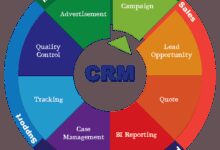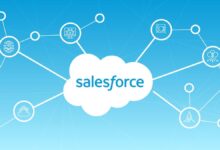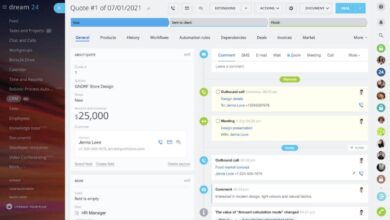CRM Software Cost: 7 Shocking Truths You Can’t Ignore
Thinking about CRM software cost? You’re not alone. Businesses everywhere are trying to balance powerful features with budget limits—and the truth is, pricing isn’t as simple as it seems.
Understanding CRM Software Cost: What You’re Really Paying For

When you dive into the world of CRM software cost, it’s easy to get overwhelmed. Is it just a monthly subscription? Or are there hidden fees lurking beneath the surface? The reality is, CRM pricing models vary wildly depending on the vendor, deployment method, and business needs. Understanding what drives these costs is the first step toward making a smart investment.
Subscription-Based Pricing Models
Most modern CRM platforms operate on a subscription model, typically charged per user per month. This pay-as-you-go structure makes it easier for businesses to scale up or down. For example, platforms like Salesforce and Zoho CRM offer tiered plans that increase in price with added features and user count.
- Entry-level plans often start at $12–$25 per user/month
- Mid-tier plans range from $50–$75 per user/month
- Enterprise solutions can exceed $150 per user/month
While this seems straightforward, many companies underestimate how quickly costs escalate as teams grow. A team of 10 users on a $50/month plan is $6,000 annually—before add-ons.
One-Time vs. Recurring Costs
It’s crucial to distinguish between one-time and recurring CRM software costs. Recurring fees include monthly subscriptions, support, and cloud hosting. One-time costs may involve data migration, custom development, or onboarding services.
- Implementation fees: $1,000–$10,000+ depending on complexity
- Data migration: $500–$5,000
- Training: $100–$200 per employee
For on-premise CRMs, you’ll also face hardware, licensing, and IT maintenance costs. According to Gartner, on-premise deployments can cost 3–5x more over five years than cloud-based alternatives.
“The total cost of ownership for CRM isn’t just the sticker price—it’s the sum of integration, training, and long-term scalability.” — Gartner Research
CRM Software Cost by Deployment Type: Cloud vs On-Premise
The choice between cloud-based and on-premise CRM systems significantly impacts CRM software cost. Each has pros and cons, but the financial implications are often the deciding factor.
Cloud-Based CRM: Flexibility and Lower Upfront Costs
Cloud CRM solutions like HubSpot, Salesforce, and Microsoft Dynamics 365 dominate the market due to their low entry barriers. You pay a monthly fee, and the provider handles hosting, updates, and security.
- No upfront hardware investment
- Scalable pricing based on users and features
- Automatic updates and maintenance included
However, long-term costs can accumulate. A business paying $70/user/month for 50 users spends $42,000 annually. Over five years, that’s $210,000—more than many on-premise licenses.
On-Premise CRM: High Initial Investment, Long-Term Control
On-premise CRM systems require purchasing licenses, servers, and IT infrastructure. While this gives companies full control over data and customization, the CRM software cost is front-loaded.
- License fees: $1,000–$3,000 per user (one-time)
- Server and hardware: $10,000–$100,000+
- Annual maintenance: 15–20% of license cost
For example, a mid-sized company with 100 users might spend $200,000 upfront plus $30,000/year in maintenance. But they avoid recurring subscription fees and can customize deeply. This model suits organizations with strict data compliance needs or legacy systems.
Hidden CRM Software Costs You Might Overlook
Many businesses focus only on the listed price of CRM software, but the real CRM software cost often includes hidden or indirect expenses. These can double your initial budget if not planned for.
Implementation and Setup Fees
Even with a low monthly subscription, implementation can be costly. Vendors may charge for initial configuration, data import, and workflow design.
- Basic setup: $1,000–$5,000
- Complex integrations: $10,000–$50,000+
- Third-party consultants: $150–$300/hour
For instance, integrating a CRM with an ERP system or legacy database often requires custom coding. According to Capterra, 68% of companies exceed their initial CRM implementation budget.
Training and User Adoption Costs
A CRM is only as good as the team using it. Poor adoption leads to wasted investment. Training ensures employees understand the system, but it comes at a cost.
- Formal training programs: $1,000–$10,000
- Lost productivity during onboarding: hard to quantify but significant
- Ongoing coaching and support: $500–$2,000/month
Studies show that companies with structured CRM training see 3x higher user adoption rates. Without it, up to 40% of CRM features go unused.
“You can have the best CRM in the world, but if your team doesn’t use it, you’ve spent zero dollars wisely.” — CRM Industry Expert
CRM Software Cost by Vendor: A Comparative Breakdown
Not all CRM platforms are created equal—and neither are their prices. Let’s compare the CRM software cost across top vendors to help you make an informed decision.
Salesforce: The Premium Powerhouse
Salesforce is the market leader, known for its robust features and ecosystem. But with great power comes a high price tag.
- Salesforce Essentials: $25/user/month (basic CRM)
- Sales Cloud: $75–$150/user/month
- Enterprise and Unlimited tiers: $300+/user/month
Add-ons like Einstein AI or Marketing Cloud can add thousands per month. Implementation often requires third-party partners, pushing total costs into six figures for large deployments.
HubSpot CRM: Free to Start, Premium to Scale
HubSpot offers a free CRM that’s powerful for small businesses. But as you scale, the CRM software cost rises with premium features.
- Free plan: $0 (unlimited users, basic features)
- Starter: $45/month (up to 1,000 contacts)
- Professional: $450–$1,200/month (marketing, sales, service hubs)
While the free tier is generous, advanced automation, reporting, and integrations require paid upgrades. For growing companies, the cost can escalate quickly.
Microsoft Dynamics 365: Enterprise Integration at a Price
Dynamics 365 integrates seamlessly with Microsoft 365 and Azure, making it ideal for enterprises already in the Microsoft ecosystem.
- Sales Professional: $65/user/month
- Customer Service: $95/user/month
- Enterprise plans: $200+/user/month
Customization and integration with Power BI or Azure AI add significant costs. However, for large organizations, the ROI often justifies the CRM software cost due to deep integration and scalability.
Factors That Influence CRM Software Cost
Several key factors determine how much you’ll pay for a CRM. Understanding these helps you anticipate expenses and avoid surprises.
Number of Users and Licensing Model
Most CRM vendors charge per user, but definitions vary. Some count all logins, while others allow unlimited contacts with limited access roles.
- Full users: full access, highest cost ($50–$150/month)
- Light users: limited access, lower cost ($10–$30/month)
- Team-based pricing: flat rate for a group (e.g., HubSpot’s tiered plans)
As your team grows, so does your bill. A startup with 5 users might pay $250/month; at 50 users, that’s $2,500+—a 10x increase.
Feature Tiers and Add-Ons
Vendors use tiered pricing to upsell. Basic plans lack automation, analytics, or multi-channel support. As you move up, features—and costs—multiply.
- Basic: contact management, task tracking
- Professional: workflows, email integration, reporting
- Enterprise: AI, forecasting, API access
Add-ons like telephony integration, e-signatures, or advanced analytics can cost $50–$500/month each. Over time, these small fees compound into major expenses.
Integration and Customization Needs
If your CRM must sync with email, calendar, ERP, or e-commerce platforms, integration costs rise. Native integrations are cheaper; custom APIs require developer time.
- Pre-built connectors: often free or low-cost
- Custom API development: $5,000–$50,000+
- Third-party middleware (e.g., Zapier): $20–$1,000/month
For example, connecting Salesforce to Shopify might cost $49/month with a native app, but custom syncing could run $15,000 in development.
How to Reduce CRM Software Cost Without Sacrificing Value
You don’t have to break the bank to get a powerful CRM. Smart strategies can lower CRM software cost while maintaining functionality.
Start Small and Scale Gradually
Begin with a basic plan and add features as needed. Many vendors offer flexible upgrades.
- Use free tiers (e.g., HubSpot, Zoho)
- Start with core sales features, add marketing later
- Monitor usage to avoid paying for unused seats
This approach reduces initial risk and allows teams to adapt before committing to expensive plans.
Negotiate with Vendors and Leverage Bundles
CRM pricing is rarely fixed. Vendors often offer discounts for annual payments, non-profits, or long-term contracts.
- Ask for 10–20% off for annual billing
- Bundle sales, marketing, and service modules for savings
- Request free training or implementation credits
For enterprise deals, hiring a procurement specialist can save 15–30% on total CRM software cost.
Use Open-Source or Low-Cost Alternatives
For budget-conscious businesses, open-source CRMs like SuiteCRM or EspoCRM offer full control at low cost.
- SuiteCRM: free (self-hosted), but requires IT support
- EspoCRM: free community edition, $49/month for cloud
- Dolibarr: open-source, modular, low-cost
While these require more technical know-how, they eliminate recurring subscription fees and reduce long-term CRM software cost.
ROI of CRM: Is the Cost Worth It?
The ultimate question isn’t just how much a CRM costs, but whether it delivers value. The ROI of CRM software can be substantial—if implemented correctly.
Measuring Financial Returns
CRM systems boost sales efficiency, reduce churn, and improve customer retention. According to Nucleus Research, the average ROI for CRM is $8.71 for every $1 spent.
- Sales productivity increase: 29%
- Lead conversion improvement: 30–50%
- Customer retention boost: 25–35%
For a company generating $1M in sales, a 10% improvement equals $100,000 in new revenue—easily justifying a $10,000 CRM investment.
Non-Financial Benefits
Beyond revenue, CRM systems improve team collaboration, data accuracy, and customer satisfaction.
- Centralized customer data reduces errors
- Automated workflows save 5–10 hours/week per employee
- Better insights lead to smarter decisions
These intangible benefits compound over time, making the CRM software cost a strategic investment, not just an expense.
“CRM isn’t a cost center—it’s a revenue engine.” — Forbes Insights
What is the average CRM software cost for a small business?
The average CRM software cost for a small business ranges from $50 to $300 per month, depending on the number of users and features needed. Free options like HubSpot CRM can start at $0, while mid-tier plans (e.g., Zoho CRM Plus) cost around $14/user/month.
Are there any truly free CRM software options?
Yes, several CRM platforms offer free plans with robust features. HubSpot CRM, Zoho CRM, and Freshsales provide free tiers with unlimited users, contact management, and basic automation. However, advanced features like reporting or phone integration usually require paid upgrades.
How much does Salesforce cost compared to other CRMs?
Salesforce is typically more expensive than competitors. Its entry-level Essentials plan starts at $25/user/month, while Sales Cloud begins at $75/user/month. In contrast, Zoho CRM starts at $14/user/month, and HubSpot offers a free plan. Salesforce justifies its price with advanced AI, scalability, and a vast app ecosystem.
Can I reduce CRM costs by using open-source software?
Yes, open-source CRMs like SuiteCRM or EspoCRM can significantly reduce long-term CRM software cost. While they require technical expertise for setup and maintenance, they eliminate recurring subscription fees and offer full customization.
What is the biggest hidden cost in CRM implementation?
The biggest hidden cost is often user training and change management. Poor adoption leads to underutilization, negating the benefits of the CRM. Companies that invest in structured training see higher ROI and faster payback periods.
Understanding CRM software cost goes far beyond the monthly subscription. It includes implementation, training, integrations, and long-term scalability. While prices vary—from free tiers to enterprise suites costing thousands per month—the real value lies in the return: increased sales, better customer relationships, and operational efficiency. By evaluating your needs, comparing vendors, and planning for hidden costs, you can choose a CRM that fits your budget and drives growth. The key is to view CRM not as an expense, but as a strategic investment in your business’s future.
Further Reading:






